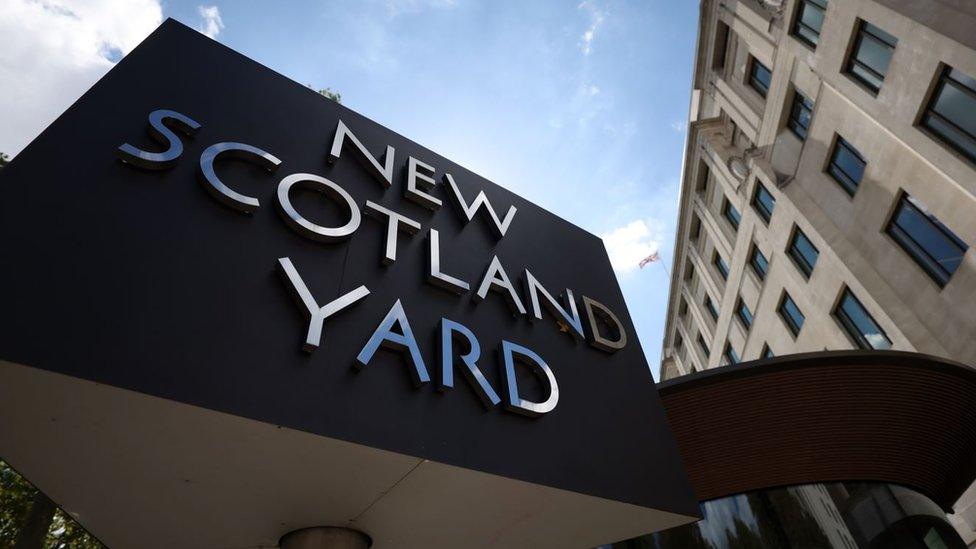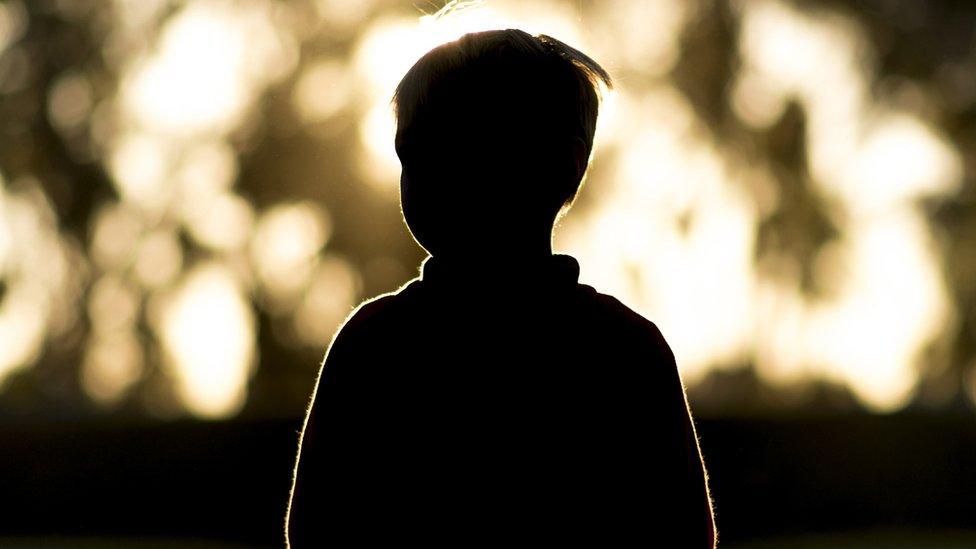Met Police dissuaded children from reporting sexual abuse - report
- Published

"For the benefit of London's children, the force should implement our recommendations in full and without delay," HMICFRS said
The Met Police dissuaded children from reporting cases involving sexual abuse, a watchdog report has found.
The force is also not doing enough for children being exploited and at risk of exploitation, HM Inspectorate of Constabulary and Fire & Rescue Services (HMICFRS) said.
It called on the Met to implement improvements "without delay".
The force's Cdr Kevin Southworth said: "I'm deeply sorry to the children and families we have let down."
HMICFRS said in its report published on Friday that the Met's lack of understanding of the nature and scale of criminal and sexual child exploitation was a "significant barrier" to the force being able to tackle the problem.
The inspectorate said it had also found evidence of good work to protect children, including the force's online child sexual abuse and exploitation teams.
'Victim-blaming language'
The report found that in some cases children had been dissuaded from making criminal complaints, and that in the majority of cases examined, 100 out of 184, children who were victims of exploitation were not seen in person.
"We also saw language recorded on some crime reports that indicated the sexual offences investigation-trained officers encouraged children not to pursue a complaint instead of offering support and reassurance," the report said.
It also had concerns about victim-blaming language among officers and staff, and officers failing to identify exploitation or to understand the links between missing children and exploitation.
HMICFRS said that when children went missing regularly, the force's response was "frequently poor", with officers and staff "simply waiting for them to turn up".
The inspectorate added that officers and staff being asked to investigate child exploitation often did not have the right skills or knowledge, and delays in starting and progressing investigations were leaving children exposed to risk.

The inspectorate said the Met's response to children who went missing regularly was "frequently poor"
The inspectorate made 11 recommendations in its report including more training, working with safeguarding partners, following all reasonable lines of inquiry and challenging victim-blaming language.
'Concerning'
Lee Freeman, an inspector at HMICFRS, said: "Children who are at risk of exploitation, or who go missing from home, are some of the most vulnerable in society.
"The police and other public services have a shared responsibility to look for the warning signs, be alert to the risks and act quickly to protect children.
"It is particularly concerning that the Metropolitan Police Service isn't doing enough when children are suffering from, or at risk of, exploitation."
He added the Met had already committed to increasing the number of officers in some teams dealing with child exploitation.
"For the benefit of London's children, the force should implement our recommendations in full and without delay," he said.
'Win back trust'
Cdr Southworth, lead for public protection at the Met, said he wanted "to reassure our communities that we are already taking significant steps to address these recommendations".
"We are putting more police resource into this area and retraining officers to have a better understanding of the complexities of child exploitation so we can continue our work to win back the trust of Londoners."
The force said it had already introduced training to directly address victim-blaming language.
The watchdog issued two accelerated notices in October, which happen when a problem is too urgent to wait for the publication of the full inspection report.
The force said that since then, more than 1,200 child protection officers had been trained and 400 officers responsible for missing children investigations had been trained to better understand child exploitation and safeguarding.
In that time, there has been a 50% increase in child exploitation concerns being identified by officers, and the number of missing children graded as "high risk" doubled, the force said.
The Met said it was also due to launch its first children and young persons strategy later this year, which would focus on seeing "children as children first and foremost".

Listen to the best of BBC Radio London on Sounds and follow BBC London on Facebook, external, X, external and Instagram, external. Send your story ideas to hello.bbclondon@bbc.co.uk, external
Related topics
- Published6 October 2023
